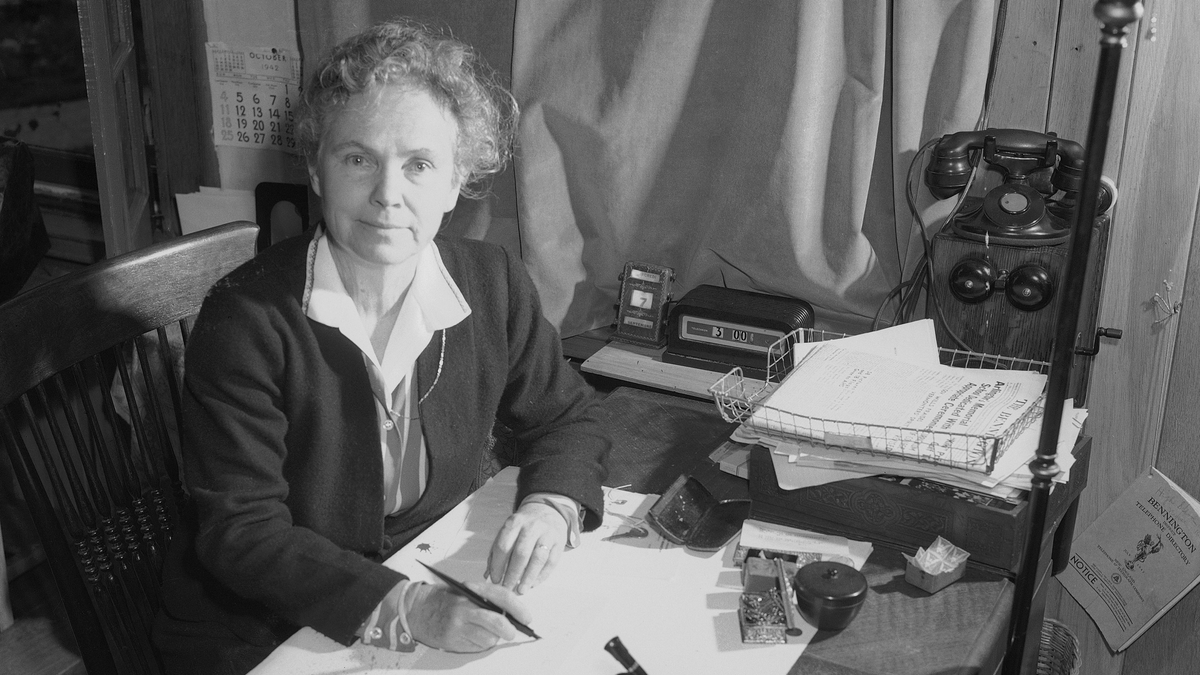
MONTPELIER, Vt. – The Vermont Board of Libraries has recommended changing the name of a children's book award that now honors a prominent Vermont author and activist accused of once supporting sterilizing people with severe mental and physical disabilities.
The board said it wants to remove the late Dorothy Canfield Fisher's name from the award to better match contemporary times and connect with young readers. The award, which was named after Fisher in 1957, honors excellence in children's literature.
The board's unanimous recommendation to the state librarian last week came after discussions about Fisher's association with the state's eugenics movement, which had been described as an attempt to deal with social and economic problems through sterilization and breeding in the 1920s and '30s.
Fisher, who wrote novels, nonfiction and short stories, was on a committee of the Vermont Commission on Country Life, which was linked to the eugenics movement.
In the 1930s, some Vermonters of mixed French Canadian and Native American heritage, as well as poor, rural whites, were placed on a state-sanctioned list of "mental defectives" and degenerates and sent to state institutions, such as the Home for the Feeble Minded in Brandon. Some had surgery after Vermont in 1931 became one of more than two dozen to pass a law that allowed for voluntary sterilizations for "human betterment."
Judy Dow is a descendant of one of the families targeted and a teacher of Native American culture. When she raised concerns about Fisher's association with the movement and her treatment of Native American and French Canadian characters in her writing, Fisher's 81-year-old granddaughter, Vivian Scott Hixson, balked.
"Many of the leaders of that movement were racists. Dorothy Canfield Fisher was not," Hixson, who has a Ph.D. in sociology and taught at Michigan State University, wrote to the board. "In fact, DCF combatted racism all her life."
Hixson, of East Lansing, Michigan, said Fishers' temporary support for "the sterilization of people with severe mental and physical handicaps" stopped in the early 1930s when Fisher's soon-to-be son-in-law — Hixson's father — and others convinced her otherwise. Hixson's father, John Paul Scott, was a genetics and psychology researcher.
"It's just unfortunate that people are looking for someone to attack," Hixson said.
Helene Lang, a former literature professor at the University of Vermont who has portrayed Fisher in living histories, also stood up to protect Fisher's name. She said Fisher's service on the committee did not mean she ever supported eugenics.
"My goal was to protect her because she was a woman who did a lot of good and was particularly the antithesis of the eugenics movement," Lang said Wednesday.
The name change recommendation should not be interpreted as an indictment of Fisher, said Bruce Post, chairman of the Board of Libraries.
"The Board was aware, to varying degrees, of the Vermont eugenics movement, but it felt that it was not the purview of the Board to involve itself in that larger issue," he said by email.
The board also recommended to the state librarian that the name of the award be reviewed every 15 years or sooner if appropriate. The state librarian did not return a phone call seeking comment.
Hixson said she understands the need to connect to the children of today and what they're reading.
"I have grandchildren," she said. "And their world is so different than the world that we grew up in."

